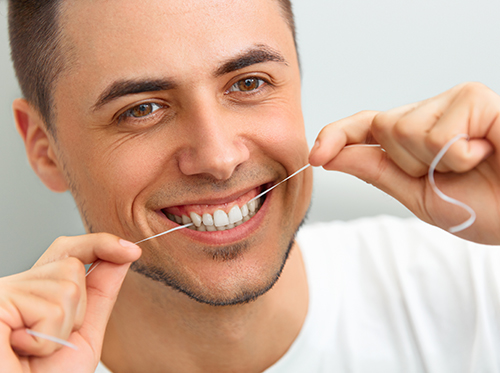How many times a day should I floss?
February 22nd, 2023

Flossing is one of the most important parts of your oral care routine. Many patients know they need to do it but find it difficult to fit into their busy lives. Well, here's the good news: flossing once a day is enough if you're doing a good job!
Some patients like to brush before they floss and others like to floss before they brush. Some like to floss in the morning when they have more energy, others like to floss at night so they can go to bed with a clean mouth. Don't get hung up on any of this, the important thing is that you floss and floss effectively no matter when you do it.
Effective flossing contributes to oral health in these ways:
- It reduces the chance of cavities between teeth, since cavities can only form on teeth covered with dental plaque and you're scraping that plaque away when you floss.
- Along with brushing, it reduces the amount of time the plaque is left on your teeth, allowing them to be in a state of healing and remineralization for longer.
- It removes plaque that accumulates at or below the gum line, aiding in the prevention of gum disease.
As you can see, flossing offers many benefits for such a simple and inexpensive technique. So if you're still wondering how much to floss, don't worry about it. Don't mistake the frequency of your flossing with the effectiveness of it. Choose a dental floss that you like and one time during the day when you can floss thoroughly and just do it! If you need more tips on how to floss correctly, ask Dr. Mark Goedecke or any member of our Mt. Pleasant team—we'd be glad to help you pick up this healthy habit!






